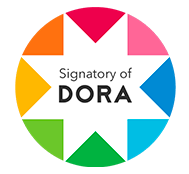The IDB reports on El Sistema: New perspectives on the history and historiography of Venezuela’s National System of Youth and Children’s Orchestras
DOI:
https://doi.org/10.21932/epistemus.4.2751.2Keywords:
El Sistema, IDB, music education, history, documents, comparative perspectiveAbstract
Over the course of its history, a powerful and eulogistic narrative has evolved around the Venezuelan National System of Youth and Children’s Orchestras, better known as El Sistema. Recently, however, more critical perspectives have begun to emerge from the academic sphere. Nevertheless, researchers have faced an acute shortage of documentary resources relating to the program’s history. The reappearance of a collection of documents from 1996-97 thus represents an important development. The sources relate to El Sistema’s efforts to secure funding from the Inter-American Development Bank (IDB). In this article, these documents are examined in chronological order and then analyzed in comparative perspective. They allow for a deepening of diachronic perspectives on the program, complementing the oral histories and journalistic reports from this period. They shed light on both the history of El Sistema and present-day discussions about this famous music education program, corroborating recent studies that have provoked polarized and high-profile responses, and providing a historical foundation for the stark division found today between the writings of advocates and critics of El Sistema.
Downloads
Metrics
References
Fuentes primarias
Abreu, J. A. (1996). Bases para un Programa de Apoyo Institucional del Banco Interamericano de Desarrollo destinado a la Red Nacional de las Orquestas y Coros Juveniles e Infantiles de Venezuela.
Estrada, E. (1997). Diagnóstico y Caracterización de la Situación del Modelo Enseñanza/Aprendizaje del Sistema de Orquestas Juveniles e Infantiles de Venezuela.
Frega, A. L. (1997). Diagnóstico y Caracterización de la situación actual del Modelo de Enseñanza – Aprendizaje del Sistema de Orquestas Preinfantiles, Infantiles y Juveniles de Venezuela.
Fundación del Estado Para la Orquesta Nacional Juvenil. (1996). Informaciones Requeridas para la Preparación del Proyecto Programa preventivo a la marginalidad infantil y juvenil.
Garmendia, E. (1996). Apoyo a las Orquestas y Coros Infantiles y Juveniles de Venezuela. Informe preliminar No. 2.
Hernández, M. y Urreiztieta V., M. T. (1996). Significación Social del Sistema de Orquestas Preinfantiles, Infantiles y Juveniles de Venezuela.
Observaciones a los informes preparados por la consultora Emma Garmendía al BID. [s.f.]
Unidad Ejecutora de Proyectos. [s.f.] Censo de Beneficiarios del Sistema de Orquestas 1996-1997: Informe metodológico y resultados.
Video: Orquestas Juveniles e Infantiles Venezolanas. [s.f.]
Fuentes secundarias
Allan, J., Moran, N., Duffy, C. y Loening, G. (2010). Knowledge exchange with Sistema Scotland. Journal of Education Policy, 14 (4), 335–347.
Baker, G. (2014). El Sistema: Orchestrating Venezuela’s Youth. New York: Oxford University Press.
Baker, G. (2016a). Editorial introduction: El Sistema in critical perspective. Action, Criticism, and Theory for Music Education, 15 (1), 10–32.
Baker, G. (2016b). Citizens or subjects? El Sistema in critical perspective. En D. Elliott, M. Silverman y W. Bowman (eds.), Artistic Citizenship: Artistry, Social Responsibility, and Ethical Praxis. New York: Oxford University Press, 313-338.
Bates, V. C. (2016). Foreword: How can music educators address poverty and inequality? Action, Criticism, and Theory for Music Education, 15 (1), 1–9.
Bergh, A. y Sloboda, J. (2010). Music and art in conflict transformation: A review. Music and Arts in Action, 2 (2), 2–18.
Booth, E. (2008). Thoughts on seeing El Sistema. http://www.americanorchestras.org/images/stories/lld_pdf/elsistema_Booth.pdf.
Booth, E. (2010). El Sistema’s open secrets. http://convention.artsusa.org/sites/default/files/pdfs/Elsistemasecrets.pdf.
Borchert, G. (2012). Sistema Scotland: A Critical Inquiry into the Implementation of the El Sistema Model in Raploch. Tesis de Maestría inédita, University of Glasgow.
Borzacchini, C. (2010). Venezuela en el Cielo de Los Escenarios. Caracas: Fundación Bancaribe.
Bowman, W. D. (2009). No one true way: Music education without redemptive truth. En T. Regelski y T. Gates (eds.), Music Education for Changing Times: Guiding Visions for Practice. Dordrecht: Springer, 3–15.
Bradley, D. (2015). Hidden in plain sight: Race and racism in music education. En C. Benedict, P. Schmidt, G. Spruce y P. Woodford (eds.), Oxford Handbook of Social Justice in Music Education. New York: Oxford University Press, 190-203.
Bull, A. (2016). El Sistema as a bourgeois social project: Class, gender, and Victorian values. Action, Criticism, and Theory for Music Education, 15 (1), 120–53.
Coronil, F. (1997). The Magical State: Nature, Money, and Modernity in Venezuela. Chicago: University of Chicago Press.
Cottrell, S. (2004). Professional Music-Making in London: Ethnography and Experience. Aldershot: Ashgate.
Crooke, A. H. D., Smyth P. y McFerran, K. S. (2016). The psychosocial benefits of school music: reviewing policy claims. The Journal of Music Research Online 7. http://www.jmro.org.au/index.php/mca2/issue/view/8
Dobson, N. (2016). Hatching plans: Pedagogy and discourse within an El Sistema-inspired program. Action, Criticism, and Theory for Music Education, 15 (1), 89–119.
Faulkner, R. (1973). Career concerns and mobility motivations of orchestra musicians. Sociological Quarterly, 14 (3), 334–49.
Fink, R. (2016). Resurrection symphony: El Sistema as ideology in Venezuela and Los Angeles. Action, Criticism, and Theory for Music Education, 15 (1), 33–57.
Frega, A. L. (1972). Música y Educación: Objetivos y Metodología. Buenos Aires: Editorial Daiam.
Frega, A. L. (1978). Música para Maestros. Buenos Aires: Editorial Marymar.
Frega, A. L. (1997). Metodología Comparada de la Educación Musical. Tesis de Doctorado inédita, Ed. CIEM (Centro de Investigación Educativa Musical) del Collegium Musicum de Buenos Aires.
Gould, E. (2009). Disorientations of desire: Music education queer. En T. Regelski y T. Gates (eds.), Music Education for Changing Times: Guiding Visions for Practice. Dordrecht: Springer, 59–71.
Gramit, D. (2002). Cultivating Music: The Aspirations, Interests, and Limits of German Musical Culture, 1770–1848. Berkeley: University of California Press.
Green, L. (2002). How Popular Musicians Learn: A Way Ahead for Music Education. Aldershot: Ashgate.
Levine, S. y Levine, R. (1996). Why they’re not smiling: Stress and discontent in the orchestra workplace. Harmony, 2, 15–25.
Logan, O. (2015). Doing well in the eyes of capital: Cultural transformation from Venezuela to Scotland. En J.-A. McNeish, A. Borchgrevink y O. Logan (eds.,), Contested Powers: The Politics of Energy and Development. London: Zed Books.
Logan, O. (2016). Lifting the veil: A realist critique of Sistema’s upwardly mobile path. Action, Criticism, and Theory for Music Education, 15 (1), 58–88.
Matthews, R. (2015). Beyond toleration – facing the other. En C. Benedict, P. Schmidt, G. Spruce y P. Woodford (eds.), Oxford Handbook of Social Justice in Music Education. New York: Oxford University Press, 238-49.
Rimmer, M., Street, J., y Phillips, T. (2014). Understanding the cultural value of In Harmony-Sistema England. Arts & Humanities Research Council/University of East Anglia.
Rosabal-Coto, G. (2016). Costa Rica’s SINEM: A perspective from postcolonial institutional ethnography. Action, Criticism, and Theory for Music Education, 15 (1), 154–87.
Scripp, L. (2015). The need to testify: A Venezuelan musician’s critique of El Sistema and his call for reform. http://www.researchgate.net/publication/285598399. (página visitada el 01-09-2016)
Silva-Ferrer, M. (2014). El Cuerpo Dócil de la Cultura: Poder, Cultura y Comunicación en la Venezuela de Chávez. Frankfurt: Vervuert Verlagsges.
Tunstall, T. (2012). Changing Lives: Gustavo Dudamel, El Sistema, and the Transformative Power of Music. New York: W. W. Norton.
Downloads
Published
How to Cite
Issue
Section
License
Politica vigente desde octubre de 2019
La aceptación del manuscrito por parte de la revista implica la cesión no exclusiva de los derechos patrimoniales de los/as autores/as en favor del editor, quien permite la reutilización, luego de su edición (postprint), bajo una Licencia Creative Commons Atribución-NoComercial-CompartirIgual 4.0 Internacional (CC BY-NC-SA 4.0)
Acorde a estos términos, el material se puede copiar y redistribuir en cualquier medio o formato siempre que a) se cite la autoría y la fuente original de su publicación (revista y URL de la obra), se brinde el acceso a la licencia y se indique si se realizaron cambios; b) no se utilice el material para fines comerciales.
La cesión de derechos no exclusivos implica que luego de su edición (postprint) en Epistemus los/as autores/as pueden publicar su trabajo en cualquier idioma, medio y formato; en tales casos, se solicita que se consigne que el material fue publicado originalmente en esta revista.
Tal cesión supone, también, la autorización de los/as autores/as para que el trabajo sea cosechado por SEDICI, el repositorio institucional de la Universidad Nacional de La Plata, y sea difundido en las bases de datos que el equipo editorial considere adecuadas para incrementar la visibilidad de la publicación y de sus autores/as.
Asimismo, la revista incentiva a los/as autores/as para que luego de su publicación en Epistemus depositen sus producciones en otros repositorios institucionales y temáticos, bajo el principio de que ofrecer a la sociedad la producción científica y académica sin restricciones contribuye a un mayor intercambio del conocimiento global.
















